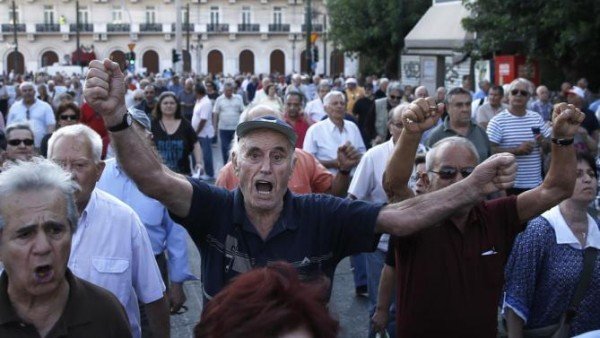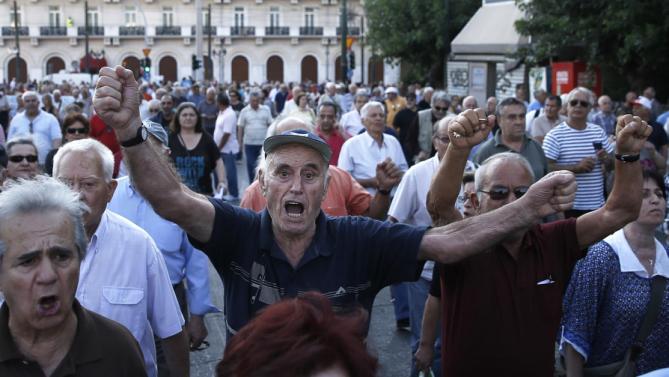Greece has requested a new bailout deal from the eurozone, just hours before it must repay €1.6 billion to the International Monetary Fund (IMF).
The Greek government is asking for a new two-year €29.1 billion aid deal from a bailout mechanism for eurozone countries.
Eurozone finance ministers discussed the Greek offer in a teleconference on Tuesday evening, but made no decision.
If it fails to make the IMF payment, Greece could risk leaving the euro.
The European Commission, which is one of Greece’s creditors, wants Athens to raise taxes and cut welfare spending.
No advanced economy has ever missed a payment on an IMF loan.

Amid fears of a Greek default on its huge public debt of €323 billion – and a possible exit from the euro – long queues of people are continuing to snake from many cash machines in Greece, where withdrawals are capped at just €60 a day.
On Tuesday evening, thousands of pro-EU protesters braved stormy weather and gathered outside the Greek parliament in Athens to urge a “Yes” vote in a referendum on July 5 over whether the country should accept its creditors’ proposals.
It follows a similar demonstration by those advocating a “No” vote – the path preferred by PM Alexis Tsipras – on June 29.
Greek banks did not open this week after talks between Greece and its creditors broke down.
However, up to 1,000 bank branches will re-open from July 1 to allow pensioners – many of whom do not use bank cards – to withdraw up to €120.
The European Commission offered a slightly amended deal to Greece late on Monday night, which the Greek government did not accept.
Instead, Greece responded with a request for a two-year deal under the European Stability Mechanism (ESM), the bailout mechanism for eurozone countries whose aim is to maintain the stability of the euro. The ESM did not exist when Greece was bailed out in 2010 and 2012.
However, German Chancellor Angela Merkel has insisted that the eurozone’s wealthiest member will not enter into new aid negotiations with Greece before its weekend referendum.
“Before a referendum, as planned, is carried out, we won’t negotiate on anything new at all,” Angela Merkel said.
The ECB is believed to have disbursed virtually all of its emergency funds for Greece, amounting to €89 billion.
https://www.youtube.com/watch?v=zrwwELoy-rk
